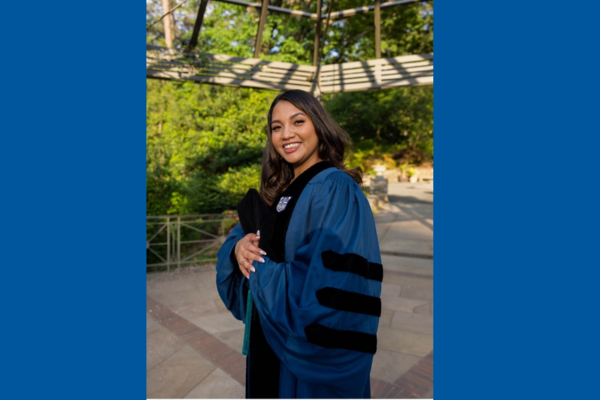Alumni Perspectives: How Duke OTD Shaped My Journey as a Hand Therapist

Since graduating from the Duke Occupational Therapy Doctorate (OTD) program, I’ve had the incredible opportunity to work in various orthopaedic clinics across Indiana, Virginia, and North Carolina. I am a full-time hand therapist at the Raleigh Hand to Shoulder Center. This role blends my passion for upper extremity rehabilitation with the fulfillment of helping patients regain function and independence.
A Career Built on Trust & Collaboration
Throughout my career, I’ve found that successful therapy is rooted in trust and collaboration. Each patient comes with unique challenges and aspirations, and it’s gratifying to tailor individualized treatment plans that help them return to the activities they love.
Upper extremity injuries can be profoundly personal and frustrating, unexpectedly impacting daily life. Empathy and understanding are crucial for designing effective interventions and supporting patients through the emotional aspects of their recovery.
Lessons from Duke OTD That Guide My Practice
Reflecting on my time at Duke OTD, I recognize how instrumental my education has been in shaping my approach to patient care. Some of the most impactful lessons include:
- Therapeutic use of self – Understanding how my presence, communication, and empathy influence patient outcomes
- Building rapport – Establishing trust to address patients’ personal goals better
- Adaptation – Recognizing that treatment should be flexible, patient-centered, and rooted in real-life activities
- Goals aren’t just numbers or benchmarks – they reflect passions, traditions, relationships, and identity. Prioritizing what matters most to each patient ensures meaningful, lasting outcomes.
Looking Ahead
As I continue to grow in my career, I carry the lessons learned at Duke OTD daily. I’m incredibly grateful for the program’s role in my development as an occupational therapist. I look forward to serving as a mentor and resource for future OT students ready to make a difference.